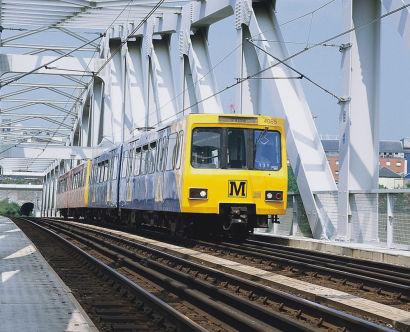Deutsche Bahn is the preferred bidder to operate Tyne & Wear Metro from April next year. DB Regio has beaten an in-house bid from Tyne & Wear PTE, which had also won through to the final shortlist.
The announcement by Nexus will be followed by the finalising of a contract which will allow DB Regio to operate the system for between seven and nine years. The move has been vigorously opposed by the unions, who had wanted the system to stay wholly within the public sector.
However, awarding an operating concession was a key requirement from the Department for Transport, which is providing more £300 million in capital funding to modernise the system, plus a long-term operating subsidy.
Nexus said the change would maintain local control and ownership, allow 'significant' improvements and also create scores of jobs in the supply chain as well as protecting existing employees. Fares and the service specification will continue to be decided by Nexus.
Nexus director general Bernard Garner said: “Today’s announcement marks the final stage in a comprehensive 15-month process, involving some of the world’s leading transport firms, to choose the very best contractor to operate trains and stations on behalf of Nexus.
"Our preferred bidder, DB Regio (Tyne and Wear) Ltd, is offering better customer service to our 40 million passengers a year, good value to the taxpayer and the best package of terms for staff. It will also drive our £20 million programme to completely refurbish all 90 Metrocars. While Nexus will continue to set fares and service specifications, we will pay an agreed fee to the operating concessionaire based on its performance.”
Meanwhile, the RMT pledged to continue its opposition, and the union's general secretary Bob Crow condemned the forthcoming contract as a 'betrayal'.
He said: “This is a disaster for Tyne and Wear which will be felt right across the Region. We can expect this essential transport service to be bled dry in the dash for profits by the private company. This decision is a kick in the teeth for the vast majority of local people who have supported the campaign against privatisation."


